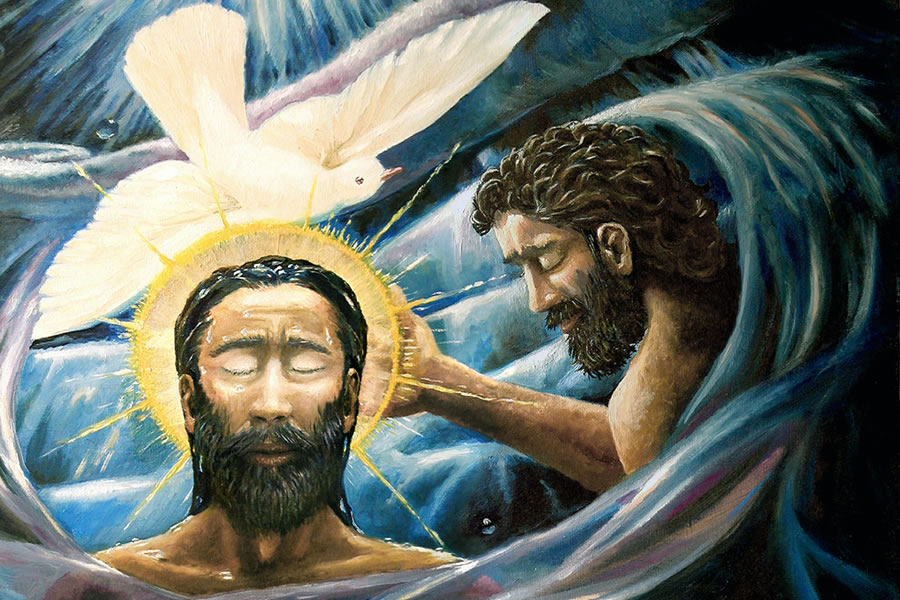
The Meaning and Types of Baptism
01-09-2022Weekly ReflectionFr. Hans RuygtBaptism is the first sacrament a person may receive. It opens the door to the other sacraments and is normally followed by the sacraments of Confirmation and First Eucharist to complete one’s full initiation into the life of Christ within the Catholic Church. Baptism is so important that in danger of death, the Church allows laity to perform baptism with a simple rite pouring water and saying, “I baptize you in the name of the Father, and of the Son and of the Holy Spirit.” Nurses sometimes do this, but it must be done correctly and with the right intention.
If the recipient recovers, then the Church teaches that the sacrament must be completed in the church with the parts of the ritual that were missed, such as clothing in white, candle, chrism oil. The effect of baptism is the remission of original sin and personal sins and incorporation into the Church.
The Catholic Church teaches parents to seek the baptism of their infants within the first weeks after birth, however, often years may go by before they do so. Infant baptism has its own ritual and is different from the adult baptism ritual. Since infants cannot speak for themselves, the rites address the parents and godparents and asks if they are ready to take on responsibilities of raising their infant according to the practice of the Catholic Church.
After a child reaches the age of reason (7 years old), the Church uses the OCIA, order of Christian initiation for adults. This is because the child is now able to ask for baptism and answer the questions put forth in the rite. The church expects people who have reached the age of reason to attend faith formation sessions so that they are knowledgeable at the time the baptism will be received. Basically, the older the person, the more the Church expects of them in terms of faith formation and understanding of what they are doing.
Children who receive baptism, also receive Confirmation and Eucharist at the same Mass. Normally, that would be at the Easter Vigil along with older adults.
In addition to infant baptism and adult baptism, there are three other types of baptism: Conditional Baptism is performed if a person thinks they were previously baptized but has no verification of it. Baptism of Desire, refers to those who are seeking God, with a sincere heart but have no opportunity to receive baptism. Baptism by Blood refers to martyrs for the Christian faith who never were able to receive the sacrament of baptism. People who are in these more unusual situations may receive the remission of sins and eternal life. God’s grace can always supply what is needed in these circumstances.
As we celebrate the Baptism of the Lord, we remember that baptism gives all of us a share in the mission of Christ according to our particular state in life. We are part of the Mystical Body of Christ.
BACK TO LIST